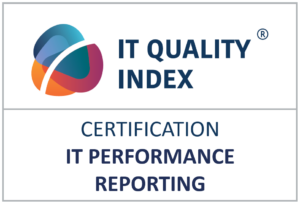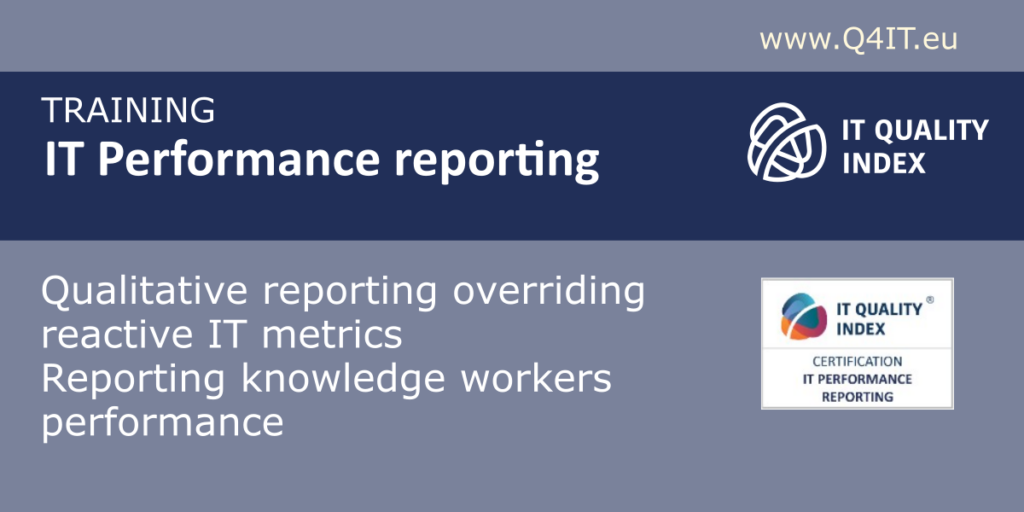A new workshop and course on measuring and reporting IT work with an emphasis on qualitative metrics
Course duration: 1 day including certification exam

Trainig description in PDF.
Overview: IT work reporting in many IT departments is reactively focused on reporting the number of processed requests, changes and incidents. As the role of IT changes towards greater proactivity, innovation and complex problems, IT metrics require a significant redesign. The course is dedicated to new metrics, especially qualitative ones and what, when and how to measure and report.
SFIA skills: PEMT Performance, MEAS Measurement, METL Methods and tools.
Prerequisites: Attendance in any course is not mandatory for the course, but we recommend that you familiarize yourself with the methodology IT Quality Index, training IT Quality Foundation and IT Quality Manager, Recommended book IT Quality Index 2022 Edition, ISBN 9798543925812
Target groups: Especially management positions – team leader, IT manager, CIO, head of department, especially in organizations where the role of IT is changing from a service provider to a competence center with a contribution to improvement and innovation. This course ideally supports digital transformation projects or organizational change in IT.
Course objectives: Participants will learn the main differences between quantitative and qualitative management, learn about a new set of qualitative metrics and how to incorporate these metrics into modern IT management.
Learning outcomes: Course participants will gain knowledge of how to improve the perception of IT by shifting the focus of IT metrics away from reactive metrics towards multidimensional and composite metrics that better reflect the knowledge-based and proactive nature of IT work.
Follow-up courses: DCMM Masterclass, DCMM Manager, IT Quality Manager, Managing knowledge worker quality
Course agenda: 1 day
- Traditional IT measurement procedures according to ITIL, ISO/IEC 20000, familiarization with frequent metrics
- Process metrics
- Service metrics
- User satisfaction
- Quantitative metrics in summary and their limitations for non-routine knowledge work that prevails
- Overview of quality metrics and their measurement procedures
- Segmentation of metrics into 4 quadrants
- ABI and WDI metrics
- Networks of metrics, direct and indirect linkage between metrics
- Knowledge worker quality analysis methodology – KWQI Knowledge Worker Quality Index
- People analytics – SFIA, Value of Knowledge Worker composite indicator VKW
- The method of analyzing the perception of collaboration – CLX and CLQ – collaboration experience and quality
- Frictionless Support Indicator FSI, Lost Productivity Indicator LPI, Productivity Indicator PI, MTBA
- Motivation and performance of the knowledge worker
- Measuring the know-how of people and the company
- Measurement frequency for different metrics, measurement costs
- Online certification exam Certification IT performance reporting CITPR
Additional information: The course is led by experienced accredited experts and trainers in the field of IT quality – AITQE / AITQT.
